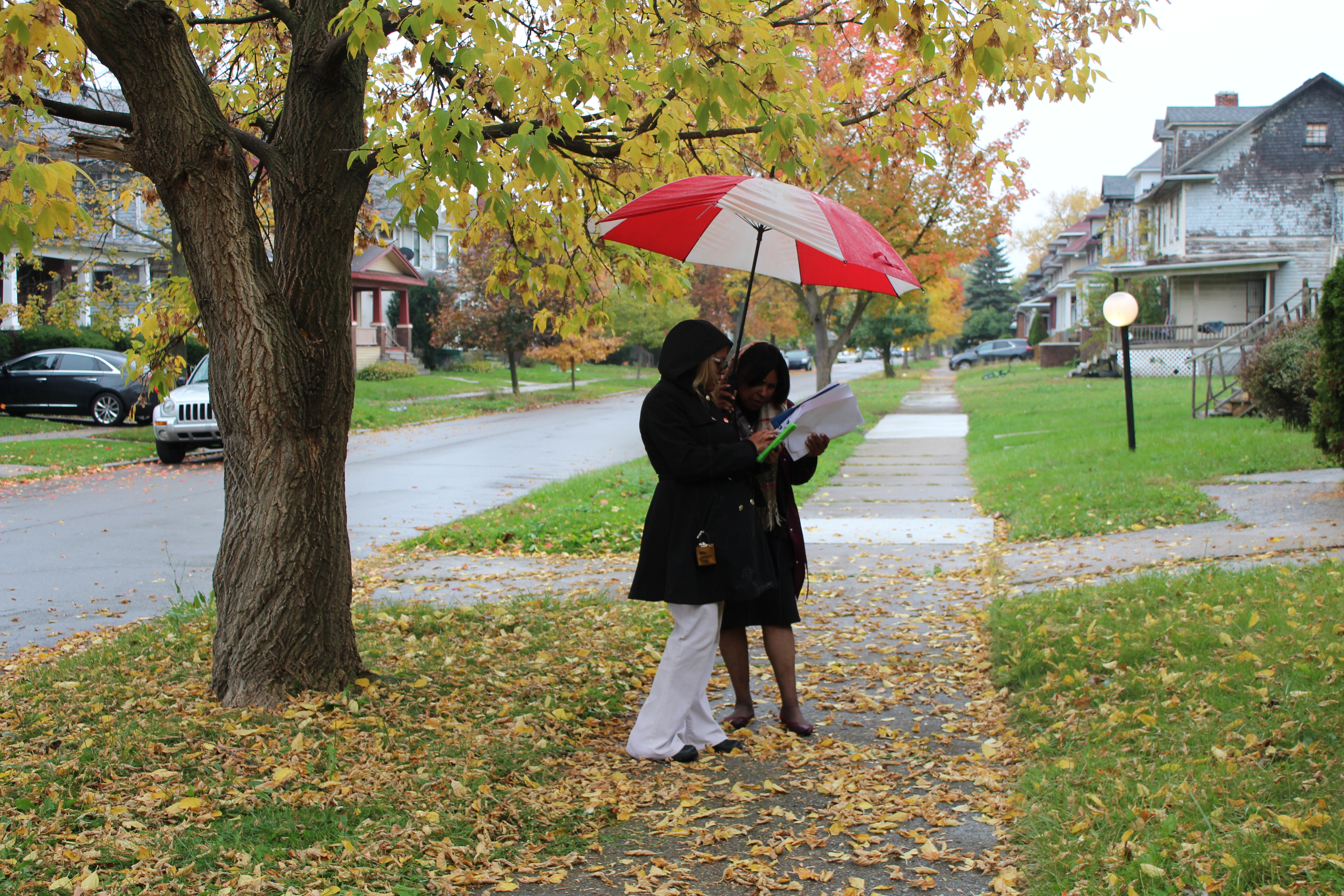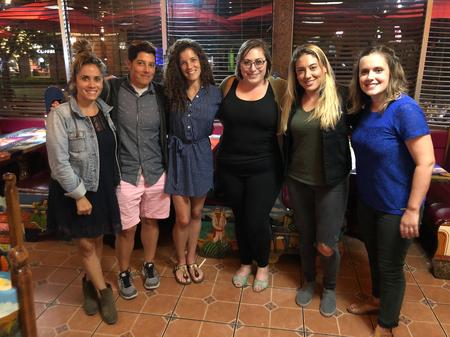What to Talk About That’s Not Coronavirus
COVID-19 has affected daily life for virtually everyone, with people being asked to stay at home to blunt the spread of the disease. Here are ideas for non-coronavirus conversations to have cooped up with others.

COVID-19 has overtaken daily life as public spaces, schools and workplaces are shutdown and people are urged to work and stay at home.
Here at 101.9 WDET, coronavirus has become an urgent coverage concern for our reporters and producers.
But that doesn’t mean we can’t occasionally take a break from discussing the ongoing response to containing the novel coronavirus.
Here are some discussion topics for the dinner table or online happy hour you may find yourself at, inspired by WDET’s recent coverage.
DISCUSSION GUIDE
The 2020 U.S. Census Is Happening Now
COVID-19 has impacted plans for the 2020 U.S. Census already, but you can also take the census online at my2020census.gov.
“Now that presumably people have time on their hands because everything is canceled, this is the best time to do the Census. – Vicky Kovari, Executive Director of Detroit’s 2020 Census effort

Detroit could lose up to $5,000 in federal funding for programs like the Supplemental Nutrition Assistance Program (SNAP) and Medicaid for every person left uncounted.
To address those issues, city officials were in the midst of a campaign that tapped the likes of Kash Doll and Icewear Vezzo to get Detroiters counted, as volunteers planned to reach out to neighbors face-to-face. But that effort is even more difficult now that the coronavirus pandemic has gripped the nation, so help out Census officials by bringing up the count among friends and family.
DNA Testing and It’s Implications
“Sometimes you’re born into a family, sometimes you choose them and sometimes family emails out of the blue and you find out you have a sister… or eight.” — Laura Khalil, storyteller

Earlier this year we introduced you to Laura Khalil, a Metro Detroit storyteller and public speaker.
At the age of 37, she made a discovery through the DNA-testing service 23andme: The father she’d known for decades was not her biological parent. She had been conceived by a sperm donor in the 1980s. The revelation took her on a journey to discover her identity — and a family she didn’t know she had.
The story sparked a discussion on what it means to be family in the era of genetic testing, and is sure to provide countless hypotheticals for a lively discussion.
The 2020 U.S. Presidential Election
Yes, the 2020 U.S. Presidential campaigns continue on, with Rep. Tulsi Gabbard (D-HA) being the most recent candidate to drop out. Gabbard endorsed former Vice President Joe Biden, adding to the string of support — sometimes unexpected — that he’s received from former rivals and other elected officials.
Focus intensifies on Sen. Bernie Sanders (I-VT), who has come under pressure to drop out of the race.
“Bernie Sanders is a man ahead of his time. The issues that he’s supported, the causes that he’s for will be mainstream of the Democratic Party. This is not his right election. This is not his time.” — Ron Fournier, president of Truscott Rossman
The election — and it’s congressional, state and local corollaries — is sure to be affected by the global COVID-19 pandemic, so feel free to game out the implications of it on the closing of the primary calendar and beginning of the general election.
WDET’s Michigan Music Madness: Can Anyone Beat Stevie Wonder?

March Madness may be cancelled, but WDET’s Michigan Music Madness bracket carries forth.
Can anyone beat Stevie Wonder as a #1 seed? Is the juggalo fanbase of Insane Clown Posse big enough to move the #9 seed into the next round?
Your vote will decide who advances in WDET’s Michigan Music Madness bracket — a decade-by-decade look at the musicians and bands that have made their name in the state or were born here.
Who Has the Right to Tell Someone’s Story?
Recently, a firestorm ensued after the publication of a book titled “American Dirt.”
It’s a story about a Mexican mother and son fleeing a drug lord. The book sold for seven figures, made Oprah’s book club, and a Hollywood studio bought the film rights. Now, the publisher has had to cancel the book tour and issue an apology.
“When I write about trauma and grief, I am writing from my own lived experiences. And I’m also aware that I never want to exploit anyone’s trauma.” — Jeanine Cummins, author
That’s in part because the book about Mexican migrants and their plight is written by a white woman, Jeanine Cummins. That fact has sparked a fierce debate about cultural appropriation, stereotyping, and whether the American publishing industry exploits the trauma of black and brown people for profit.
How the “Coming Out” Narrative Has Evolved
Pop-culture may have it appear as though “coming out” has become an easier conversation.
However, when going beneath the surface, easy wouldn’t quite be the proper term.
“There’s a great deal of shame in minority communities over their LGBT orientation.” – Dr. Fran Brown, Michigan School of Psychology
According to Curtis Lipscomb, founder of LGBT Detroit and Dr. Fran Brown, president of the Michigan School of Psychology in Farmington Hills, revealing your sexual identity still comes with a mix of emotions and discomforts; and when it comes to minority groups, the topic is still taboo and in some cases not without harm or conflict.
This segment with CultureShift’s Ryan Patrick Hooper explores how social progress doesn’t come for everyone at once, pushes again the prevailing narrative often delivered by media.
